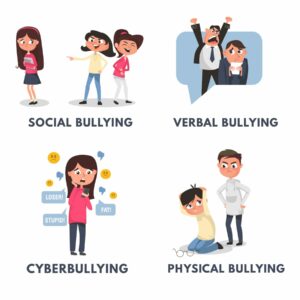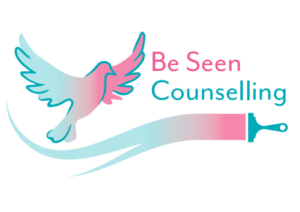
Anti-Bullying Week holds a personal significance for me, rooted in my own painful experiences as a child. My first memories upon arriving in the UK from Portugal are encapsulated by the challenges I faced in school where I was severely bullied. I was different, struggling to communicate because I couldn’t speak the language. My fears, such as heights, only added to my vulnerability, while my shyness made it difficult to forge friendships.
In my reception class, I encountered one particular boy who terrorized me. A distressing experience stands out vividly; he would push me to the ground, grab my ponytail, and drag me across the playground. The bruises and scratches I bore were tangible reminders of the suffering, yet teachers seemed unaware of the extent of his bullying or how to address it effectively. Reflecting on those moments, I recognize the silence surrounding bullying; it wasn’t a topic discussed or acknowledged.
Transitioning to secondary school was another daunting challenge, especially since I faced teasing about my weight. I vividly recall being pushed into a corner and laughed at during the induction day. At that time, I didn’t realize that I was struggling with food and often resorted to comfort eating, a coping mechanism for my emotional turmoil which led to weight gain and body issues.
It’s not just my own experiences that weigh heavily on my heart; my oldest child has also faced bullying throughout her school years, both in primary and secondary education. It saddens me to witness that bullying seems to have escalated, especially with the rise of online activity and the prevalence of “keyboard warriors” who hide behind screens, perpetuating harm without consequence.

Understanding Bullying
Bullying can be defined as repeated aggressive behavior intended to harm, intimidate, or control another individual. It can manifest in various forms, including verbal, physical, and psychological abuse. The effects of bullying are detrimental, particularly for young people, leading to:
Understanding bullying in childhood is crucial as it can have significant impacts on a child’s development and future interactions. Children who experience or witness bullying can learn various social and emotional lessons, including:
Addressing bullying through education and support is essential in guiding children towards positive outcomes. Schools and parents can play a vital role by promoting an environment of respect and inclusion, teaching children about empathy, and encouraging open communication.
The consequences of bullying can extend into adulthood, affecting relationships and career opportunities. Addressing bullying early is vital for the well-being of individuals and communities.

When children do not receive the necessary support to cope with bullying and its aftermath, several potential outcomes can arise as they transition into adulthood:
To mitigate these negative outcomes, it is vital to provide support during childhood through counseling, education, and awareness programs. Encouraging open dialogue about feelings and experiences can also help individuals process their past and foster healthier adult relationships and coping mechanisms.
Bullying in Adults and the Workplace
Bullying is not limited to children. It can also occur among adults in various settings, including the workplace. Workplace bullying encompasses repeated unreasonable actions directed toward an employee, leading to physical or psychological harm. This behavior can manifest as:
Statistics reveal the extent of bullying in the UK:
A study by the Chartered Institute of Personnel and Development (CIPD) indicated that 22% of employees had experienced bullying or harassment at work.
Lived Experience: A Client’s Journey
One of my clients, Sarah, sought counselling after enduring bullying throughout her school years. She described her experience of being isolated and verbally attacked by classmates for her appearance. Initially, Sarah found it difficult to open up, haunted by the shame and fear instilled by her bullies. Through counselling, she began to explore her feelings, which included anger, sadness, and confusion.
Working together, we focused on building her self-esteem and developing assertiveness skills. Over time, Sarah learned to set boundaries and communicate effectively, ultimately transforming her relationship with herself and others. Today, she advocates for awareness against bullying, sharing her story to inspire others to seek help and speak out. (Anonymised)

Cyberbullying
Online often referred to as cyberbullying, involves the use of digital platforms—such as social media, websites, and messaging apps—to harass, threaten, or target individuals. This can take various forms, including spreading rumors, posting hurtful comments, sharing embarrassing images, or sending threatening messages.
In recent years, cyberbullying has escalated in the UK for several reasons:
Efforts to combat online bullying in the UK include government initiatives, educational programs in schools, and public campaigns aimed at raising awareness and promoting digital citizenship. However, as online interactions continue to evolve, addressing cyberbullying remains a significant challenge.
The Impact of Online Bullying
The impact of cyberbullying is profound and multifaceted, particularly with the rise of social media. Victims often experience increased anxiety, depression, and feelings of isolation due to the constant accessibility of online interactions, creating a sense of entrapment that makes it difficult to escape harassment. This relentless targeting can severely damage self-esteem and lead to academic consequences, including absenteeism and lower grades, as students struggle with the stress and distraction caused by bullying. Moreover, the fear of further bullying may drive victims to avoid social situations, resulting in increased isolation and loneliness. Feelings of shame and stigma can prevent victims from seeking help, perpetuating their distress, and in some cases, individuals may turn to substances to cope with emotional pain. Tragically, cyberbullying has been linked to severe outcomes, including self-harm and suicide, as the persistent nature of online harassment fosters hopelessness. Witnessing this evolution of bullying into the digital realm is disheartening. It highlights the urgent need for comprehensive strategies—encompassing education, support systems, and awareness campaigns—to combat the risks and support those affected. Encouraging conversations about online behaviour and mental health, as well as promoting empathy and kindness online, is crucial in addressing the impacts of cyberbullying.
Counselling and Its Benefits
Counselling clients who have experienced bullying provides essential support in navigating the emotional turmoil associated with such adversities. In a safe and confidential environment, individuals can express their feelings without fear of judgment, allowing them to process their experiences effectively. Counsellors work with clients to develop coping strategies, enhance problem-solving skills, and build resilience, empowering them to confront and manage bullying situations. Furthermore, counselling can help in restoring self-esteem, promote healing, and foster a sense of empowerment that enables clients to reclaim their sense of identity and well-being. Overall, the benefits of counselling extend beyond immediate relief, equipping individuals with tools that aid in personal growth and the prevention of future bullying.

What to Do if You Are Being Bullied
Whether in school or in the workplace, knowing how to address bullying is essential. Here are some practical steps for those facing bullying:
In Schools:
In the Workplace:
By taking these steps, you can address workplace bullying more effectively and protect yourself from its negative effects.
Understanding the Roots of Bullying: A Devil’s Advocate Perspective
Bullying has long been a critical issue in schools, workplaces, and online environments. While the immediate effects of bullying can be devastating for victims, it’s essential to consider the underlying motivations and contexts that lead individuals to engage in bullying behavior. Playing devil’s advocate, we can explore some of these reasons, acknowledging that understanding does not excuse harmful actions but can inform more effective prevention strategies.
Understanding these motivations is crucial for developing effective intervention and prevention programs. Addressing root causes rather than solely focusing on the behaviour can lead to more sustainable solutions. Programs that promote empathy, teach conflict resolution, and provide emotional support can help break the cycle of bullying and create a more supportive environment for everyone. Through awareness and education, we can foster a culture of kindness and respect, reducing the prevalence of bullying behaviours in society.
Conclusion
As we approach Anti-Bullying Week, let us reflect on the profound impact bullying has on individuals of all ages. It is crucial to recognize the signs of bullying, support those who experience it, and foster an environment where kindness and respect flourish. Together, we can create a culture that stands up against bullying, ensuring that no one has to endure the pain and isolation I faced as a child. Let this week serve as a reminder that every action of support counts and that we can collectively make a difference. By promoting understanding and compassion, we can break the cycle of bullying, contributing to a world where every individual feels valued and safe.

Hi there, my name is Carina,
I support survivors of domestic violence / Intimate partner violence, to understand and process the emotional and psychological symptoms so that you live your life feeling safe in your own skin, gain peace and joy in everyday moments and trust yourself and others again.
Camberwell
Southwark
London SE5 7HN

©BeSeenCounselling2024
©2025
Be Seen Counselling